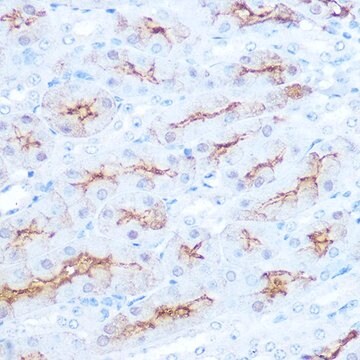05-1085
Anti-IRS1 Antibody, clone 4.2.2
clone 4.2.2, from mouse
Synonym(s):
insulin receptor substrate 1
About This Item
Recommended Products
biological source
mouse
Quality Level
antibody form
purified antibody
antibody product type
primary antibodies
clone
4.2.2, monoclonal
species reactivity
pig, canine, human, mouse, rat, monkey, bovine
technique(s)
immunocytochemistry: suitable
immunoprecipitation (IP): suitable
western blot: suitable
isotype
IgG2aκ
NCBI accession no.
UniProt accession no.
shipped in
wet ice
target post-translational modification
unmodified
Gene Information
bovine ... Irs1(538598)
dog ... Irs1(486148)
human ... IRS1(3667)
mouse ... Irs1(16367)
pig ... Irs1(100512686)
rat ... Irs1(25467)
rhesus monkey ... Irs1(707870)
General description
Specificity
Immunogen
Application
Quality
Western Blot Analysis:
1:1,000 dilution of this antibody was used to detect IRS1 in IRS/IR transfected CHO -/+ Calyculin A/ Okadaic Acid-treated cell lysate.
Target description
Physical form
Other Notes
Not finding the right product?
Try our Product Selector Tool.
Storage Class Code
12 - Non Combustible Liquids
WGK
WGK 1
Flash Point(F)
Not applicable
Flash Point(C)
Not applicable
Certificates of Analysis (COA)
Search for Certificates of Analysis (COA) by entering the products Lot/Batch Number. Lot and Batch Numbers can be found on a product’s label following the words ‘Lot’ or ‘Batch’.
Already Own This Product?
Find documentation for the products that you have recently purchased in the Document Library.
Our team of scientists has experience in all areas of research including Life Science, Material Science, Chemical Synthesis, Chromatography, Analytical and many others.
Contact Technical Service